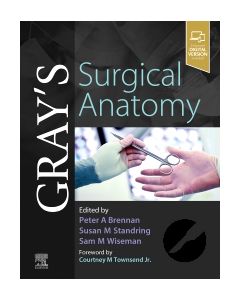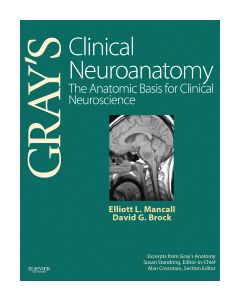International Women’s Day: Celebrate the achievements of female medical book authors


How do you feel about being honored as a female editor in the field of medicine?
It has been a privilege to have been the Editor-in-Chief of this great book for 20 years. I was invited to become E-i-C on the basis of my proposal that the book should change from a systematic to a regional anatomical approach: as far as I am aware, the fact that I was female had no bearing on the Publishers’ decision to appoint me to the role, they were persuaded by my proposal to change the basic approach of the book. That said, I am delighted and humbled if my work as E-i-C has inspired other women to enter and work in science /medicine.
“Keep focused on what you want to achieve (but always have a plan B because life has a habit of derailing the best laid plans from time to time!).”
What would your advice be to other female scientists/clinicians wishing to become authors/editors?
Be passionate and well informed about your subject in equal measure. Keep focused on what you want to achieve (but always have a plan B because life has a habit of derailing the best laid plans from time to time!). Try not to procrastinate. Keep to agreed schedules – remember as lead author or editor you are setting the standard for your team, just as you would as a PI of a research lab. Do your research and identify your target audience before pitching your ideas to a publisher. Learn to read critically, take every opportunity to act as a reviewer for scientific journals; write and broadcast on your topic. Develop and practice your writing and teaching styles – communication is key. Do not be dispirited when your applications for research grants or plans for a book are rejected – develop resilience in the face of adversity, reflect on how you can improve. As an editor, work inclusively with your authors and your publisher. Be guided by evidence, seek advice when you are unsure and be prepared to apologise when you are wrong! Read avidly and think laterally.
What do you find most challenging when editing Gray’s?
Finding sufficient time to complete the many tasks involved whilst also maintaining a life outside Gray’s. Trying to get my head around complex topics and keeping a finger on many pulses. Placating irritated authors (fortunately very rarely needed).
“After graduation women remain significantly under-represented in clinical specialties such as surgery and in senior clinical academic positions.”
What do you regard as the most significant achievement for women in science/medicine within the past decade?
Depends whether the question concerns achievements made by women or for (ie on behalf of) women. In
the UK, women have recently been Presidents of the Royal Colleges of Surgeons, Physicians, Pathologists and
Radiologists and served as the Chief Medical Officer of Health – all significant personal achievements that have
surely raised the profiles of women in medicine.
I welcome government initiatives to attract young women to study STEM subjects in school and subsequently at
university and in apprentice schemes – but momentum must be maintained over years to persuade girls to engage with
science and maths. Although some 60% of medical students in the UK are women, after graduation women remain
significantly under-represented in clinical specialties such as surgery and in senior clinical academic positions –
the ‘leaky pipeline’ persists world-wide. The case for societal change was well made in an editorial in the Lancet
in 2019… to achieve meaningful change, actions must be directed at transforming
the systems that women work within. (Lancet 393, Issue 10171, P493, February 09, 2019).
Which arena of Anatomy do you feel warrants increased attention and awareness in the future?
Difficult to nominate only one arena because ‘anatomy’ is such a broad church. My short list includes (in no particular order): the anatomy of extremes of age; the impact of developments in medical imaging, computer-guided surgery and robotic surgery; developments in anatomical pedagogy to service the changing demands of modern undergraduate and postgraduate curricula; harmonization of anatomical/surgical terminologies.
If you were to recommend just one chapter or section of Gray’s Anatomy to readers, which would it be and why?
The Section on neuroanatomy, particularly the chapters on the cerebellum and the cerebral hemispheres, both full of new insights into these complex areas.
Would you like to share any personal experiences that have inspired you and your many honourable contributions to the study of Anatomy?
Recovering from complex surgery and being thankful for the consummate skill and anatomical knowledge of the clinicians who looked after me.



